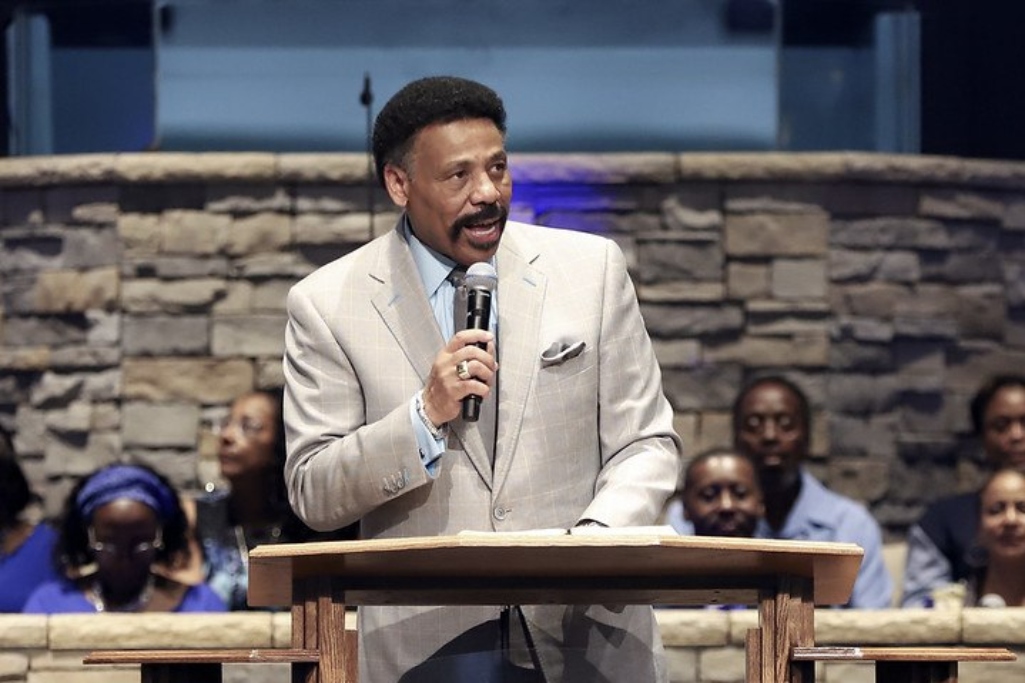
Messengers adopt a recommendation from the SBC Executive Committee June 15 at the 2022 SBC annual meeting in Anaheim, Calif.
A motion regarding the North American Mission Board’s (NAMB) ministry assignments dominated the Southern Baptist Convention (SBC) Executive Committee’s (EC) report of its recommendations during the June 15 morning session of the SBC annual meeting.
Last year, messengers to the annual meeting in Nashville rejected a request for collegiate ministry to be moved from Lifeway’s ministry assignment to NAMB’s. Lifeway trustees approved the revisions in January 2021, with NAMB trustees making a formal request for the change at their spring meeting.
Messengers at this year’s annual meeting asked for clarity on NAMB’s relationship with the collegiate ministry prior to the motion’s approval, which ended up going forward by a sizable margin.
J.P. Williams, pastor of First Baptist Church in Stonewall, Okla., asked one of those clarifying questions about Baptist Collegiate Ministries (BCM), also known as Baptist Student Unions (BSU) or other names in different states.
“I and a good number of people my age in the ministry are products of BSU and BCM discipleship. What will the relationship be with NAMB and the existing BCMs?” he asked.
Williams cited a period of time in his state “several years ago” he called “very difficult” when “some consolidation took place.” Those steps came about from a mindset prioritizing efficiency. Smaller ministries and BCMs struggled in that time, he said.
“Are we going to begin to see BCM replaced by some sort of NAMB initiative?” he wondered. “Will the BCM continue to exist?”
NAMB President Kevin Ezell noted the contribution to Southern Baptist collegiate ministry through historic leaders such as Oklahoman Max Barnett before giving his answer.
“Absolutely not,” he said. “We want to work in partnership with our state conventions. All the BCMs that we relate to are connected through the state conventions.
“We simply want to come beside them and provide resources and a sense of brotherhood. Give them a national home where they relate state to state.”
Probing further, another collegiate ministry leader from Arizona asked if NAMB will invest long-term in collegiate ministry.
After expressing his appreciation for Arizona Southern Baptist collegiate ministry—called Christian Challenge—and the work of Executive Director David Johnson, Ezell repeated NAMB’s goals.
“There really is no razor blade in the apple, here,” he said. “We simply want to provide resources and coaching and help where we can help.”
Other questions centered around funding and how adding collegiate ministries could impact what was available for churches. Ezell responded that the investment in collegiate ministry will benefit those churches when students look for a church home.
SBC President Ed Litton, presiding over business sessions from the stage, noted that Redemption Church of Saraland, Ala., where he is pastor, has made a commitment toward California due in part to NAMB’s work in the state.
Three other recommendations passed easily. Recommendation 1 amended the SBC Constitution regarding officer elections and clarified that no person may be eligible as a candidate for two offices simultaneously. Per the Convention’s bylaws, this was the second of two votes in consecutive annual meetings to make the change.
Recommendation 2 for approval of the Cooperative Program Allocation Budget and Recommendation 3 to approve the 2022-23 SBC Operating Budget also passed.
Jay Adkins, lead pastor of First Baptist Church in Westwego, La., discussed a motion he introduced at last year’s annual meeting that was referred to the Executive Committee. That motion addressed a perceived conflict of interest regarding the roles of legal counsel for the EC.
Stating his disappointment that the EC’s response at that time suggested there was no conflict of interest, Adkins then pointed out that the individuals about whom he held concerns were no longer with the Executive Committee.
“Let’s move on from this,” Adkins said. “In my very encouraging conversation with our current counsel and with [Interim CEO and] President [Willie] McLaurin, I believe we are all on the same page about our ultimate concerns.
“I am pleased to say that I’ve been assured there are intentions to bring forth, in the near future, some guardrails regarding the hiring of legal counsel and their role as advisors to our work not the leaders of our work. This is being brought about to ensure we will never see this sort of thing happen again.”
(EDITOR’S NOTE – Scott Barkley is national correspondent for Baptist Press.)


